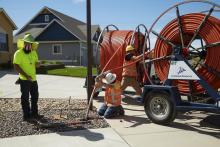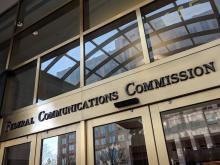New Policy Brief: Dollars and Sense In Debate Over BEAD Fiber Rules
The $42.5 billion federal Broadband Equity, Access, and Deployment (BEAD) grant program is facing what appears to be a significant overhaul as the new administration aims to alter, among other things, one of program’s key tenets: a preference for building fiber networks.
Meanwhile, a new ILSR policy brief – “BEAD Should Continue to Prioritize Fiber Internet Network Investments” – makes the case for why “these changes would repeat past policy mistakes and waste billions of dollars while delivering subpar Internet access to rural families at much higher prices.”
The brief then describes why fiber networks should continue to be prioritized:
“In designing BEAD, Congress recognized that it was foolish to spend thousands of dollars per home every 5-10 years to deliver obsolete connections and chose instead to build fiber optic networks that will last generations – ultimately both saving taxpayer dollars and delivering an equitable Internet access option to millions of rural homes.”
And while the policy brief points to important long-term consequences that should be considered to ensure rule changes don’t squander a “generational investment” by building “something more temporary and inferior to the services found on every street in urban and suburban areas,” the brief does not argue that other technologies should not be a part of the mix.
“To be clear, BEAD’s priority for fiber does not bar the use of other technologies when appropriate. In cases where the cost of fiber is simply too great, other technologies are on the table – likely wireless options of both terrestrial and low-earth orbit,” the brief says.



